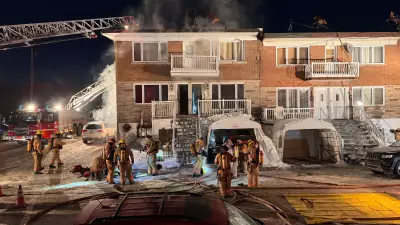
A severe staffing crisis in Northern Ontario hospitals is creating devastating consequences for sexual assault survivors, with multiple reports emerging of victims being denied access to crucial forensic evidence collection kits due to lack of qualified medical personnel.
The situation has reached a critical point where survivors who courageously come forward after traumatic assaults are being turned away from emergency departments without receiving the specialized care and evidence collection they desperately need. This breakdown in essential services threatens both the immediate healthcare needs of survivors and the potential for future legal justice.
Systemic Failures in Trauma Care
Medical professionals and victim advocates are sounding alarms about what they describe as a systemic failure in providing trauma-informed care to some of healthcare's most vulnerable patients. The specialized nature of sexual assault evidence collection requires trained nurses and physicians who can properly administer the kits while providing compassionate support.
"When survivors are turned away because there's no one available to complete the examination, it compounds their trauma exponentially," explained a healthcare advocate familiar with the situation. "These individuals have already experienced profound violation, and being denied care adds institutional betrayal to their suffering."
Northern Ontario's Healthcare Emergency
The forensic kit denials represent just one facet of a broader healthcare emergency unfolding across Northern Ontario communities. Rural and remote hospitals have been struggling with chronic staffing shortages that have led to:
- Emergency room closures and reduced hours
- Limited access to specialized medical services
- Increased patient transfers to distant facilities
- Burnout among remaining healthcare staff
These systemic challenges are particularly acute for time-sensitive services like sexual assault care, where evidence collection must occur within specific windows to be forensically viable.
Legal and Emotional Consequences
The inability to access forensic examination kits carries significant implications beyond the immediate medical concerns. These kits play a crucial role in:
- Preserving physical evidence that could identify perpetrators
- Supporting potential criminal investigations and prosecutions
- Documenting injuries and collecting DNA evidence
- Providing preventative treatments for sexually transmitted infections
Advocates emphasize that when survivors cannot access these services, it may compromise both their health outcomes and any future legal recourse.
Calls for Immediate Action
Healthcare professionals, victim services organizations, and community advocates are demanding urgent solutions to address the staffing shortages. Proposed measures include:
- Enhanced training programs for rural healthcare providers in sexual assault forensics
- Improved retention strategies for medical professionals in Northern communities
- Development of mobile response teams that can travel to underserved areas
- Increased funding for rural healthcare infrastructure
The situation highlights the urgent need for systemic changes to ensure that all Canadians, regardless of their geographic location, can access essential healthcare services when they need them most.





